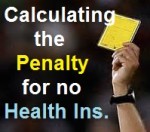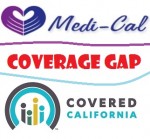The IRS has published a taxpayer friendly guide to assist individuals and families with attempting to calculate their Affordable Care Act tax credits. The focus of IRS Publication 5187 Health Care Law: What’s New for Individuals & Families is on the Shared Responsibility Payment (individual mandate penalty) and calculating eligible Premium Tax Credits for 2014. Pub. 5187 is […]











